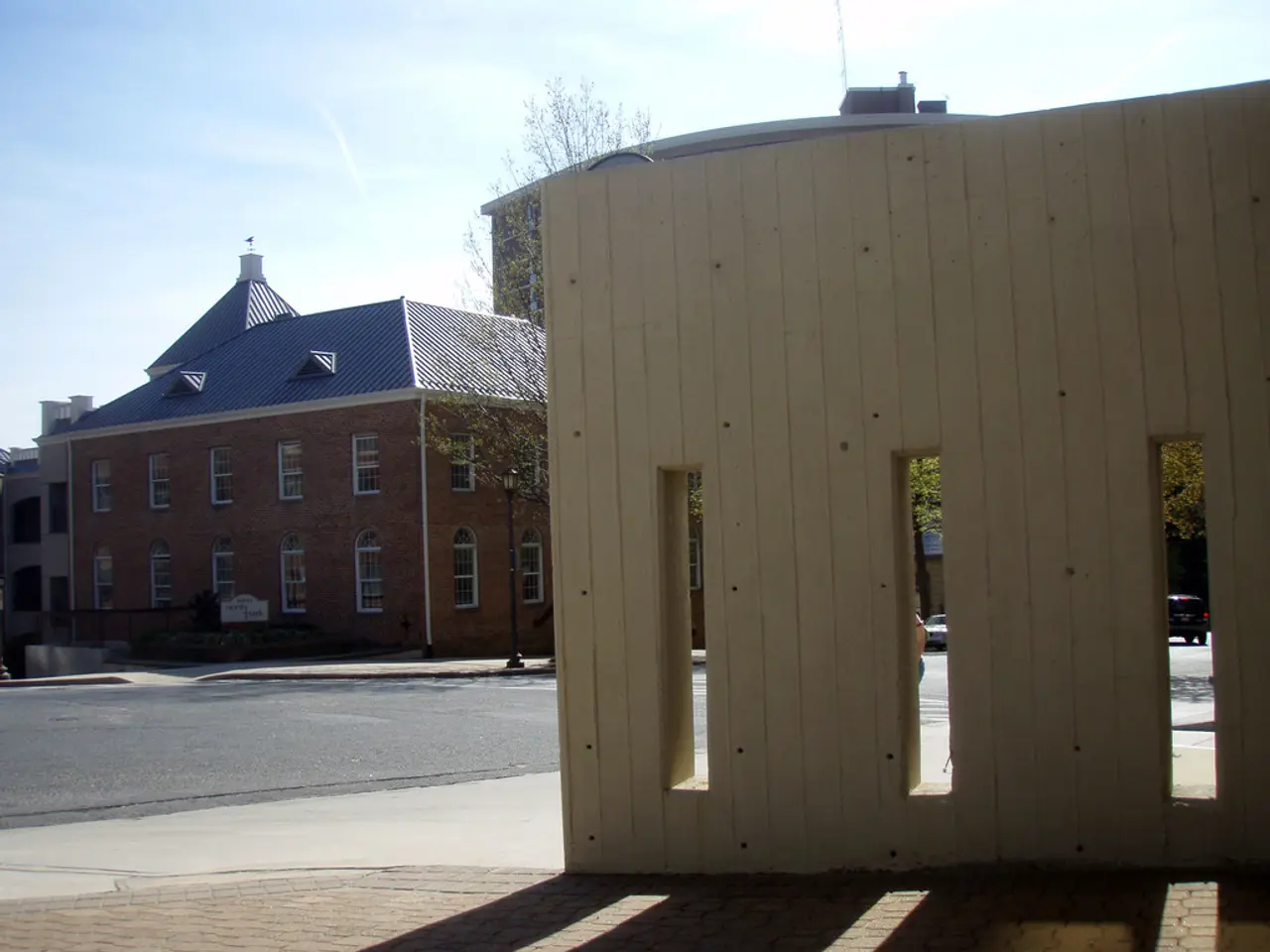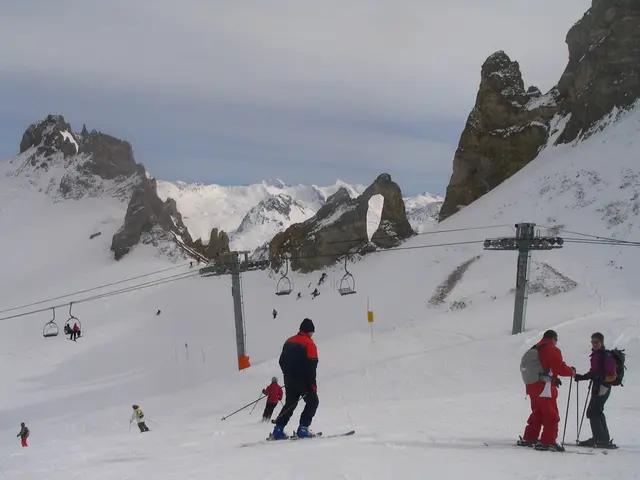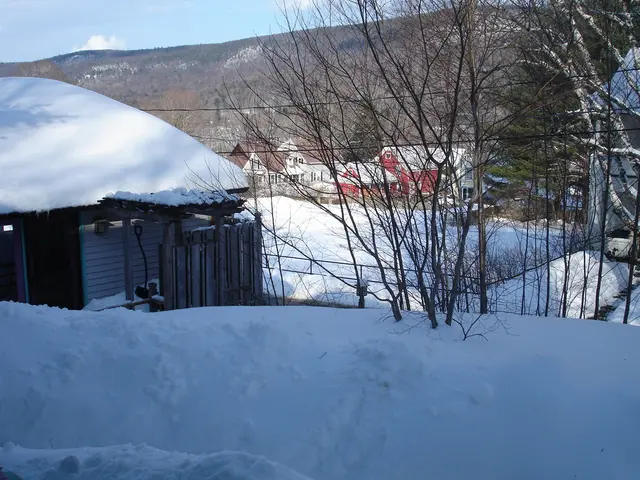Israel greenlights significant West Bank settlement construction
In a move that has sparked international concern, Israel's Higher Planning Council has approved plans to build 3,401 housing units in the E1 area of the West Bank. This decision, strongly supported by Israeli Finance Minister Bezalel Smotrich, is seen as a significant escalation in Israeli settlement policy [1][3].
The E1 project, first proposed in 1994, involves a 12-kilometer zone east of Jerusalem connecting the large settlement of Ma'ale Adumim to the Jerusalem municipal area [1][2]. Israeli officials argue that E1 is vital for Israel's national security and for securing defensible borders, particularly to protect Jerusalem [2].
However, Palestinians and many international observers view the settlement expansion as a major obstacle to the two-state solution. The construction of the E1 settlement could potentially end hopes for a contiguous Palestinian state with East Jerusalem as its capital [1][2]. By physically dividing the West Bank and undermining Palestinian territorial continuity necessary for a viable state, the settlement expansion is seen as a significant impediment to Palestinian statehood efforts [1].
The Palestinian leadership asserts that the expansion "prevents the establishment of a Palestinian state" [2]. Critics argue that the settlement physically divides the West Bank, making it difficult for a viable Palestinian state to emerge [1]. Some Israeli offers and proposals, like Olmert’s 2008 plan, envisioned alternatives with bypass roads and territorial compensation that would mitigate the impact, but these were rejected by Palestinians [2].
The rapid approval of the E1 settlement expansion at this time signals a shift toward consolidating Israeli sovereignty in the West Bank, reducing prospects for resuming meaningful negotiations toward statehood [1]. While the search results do not detail extensive international reactions, such moves typically attract strong condemnation from the United Nations, EU, and many countries committed to the two-state framework, viewing expansion as a violation of international law and further destabilizing the peace process [3].
Aviv Tatarsky, a researcher at the Israeli anti-settlement organisation Ir Amim, believes that the approval of the E1 neighborhood demonstrates Israel's determination to pursue a strategic program that could bury the possibility of a Palestinian state and effectively annex the West Bank [1]. Aviv Tatarsky and others call on the international community to take urgent and effective measures against the construction of the E1 neighborhood due to its potential to implement an apartheid regime [1].
The construction of infrastructure work in E1 could begin within a few months, and housing construction within about a year, according to Israeli NGO Peace Now [1]. The UN chief, Antonio Guterres, has warned that constructing Israeli homes in E1 would "put an end to" hopes for a two-state solution to the Israeli-Palestinian conflict [1].
In conclusion, the accelerated approval of the E1 settlement expansion marks a significant escalation in Israeli settlement policy that the Israeli government frames as necessary for security but is widely criticized as effectively ending the feasibility of the two-state solution by fragmenting Palestinian lands and impeding Palestinian statehood efforts [1][2][3].
Read also:
- United States tariffs pose a threat to India, necessitating the recruitment of adept negotiators or strategists, similar to those who had influenced Trump's decisions.
- Weekly happenings in the German Federal Parliament (Bundestag)
- Southwest region's most popular posts, accompanied by an inquiry:
- Discussion between Putin and Trump in Alaska could potentially overshadow Ukraine's concerns








